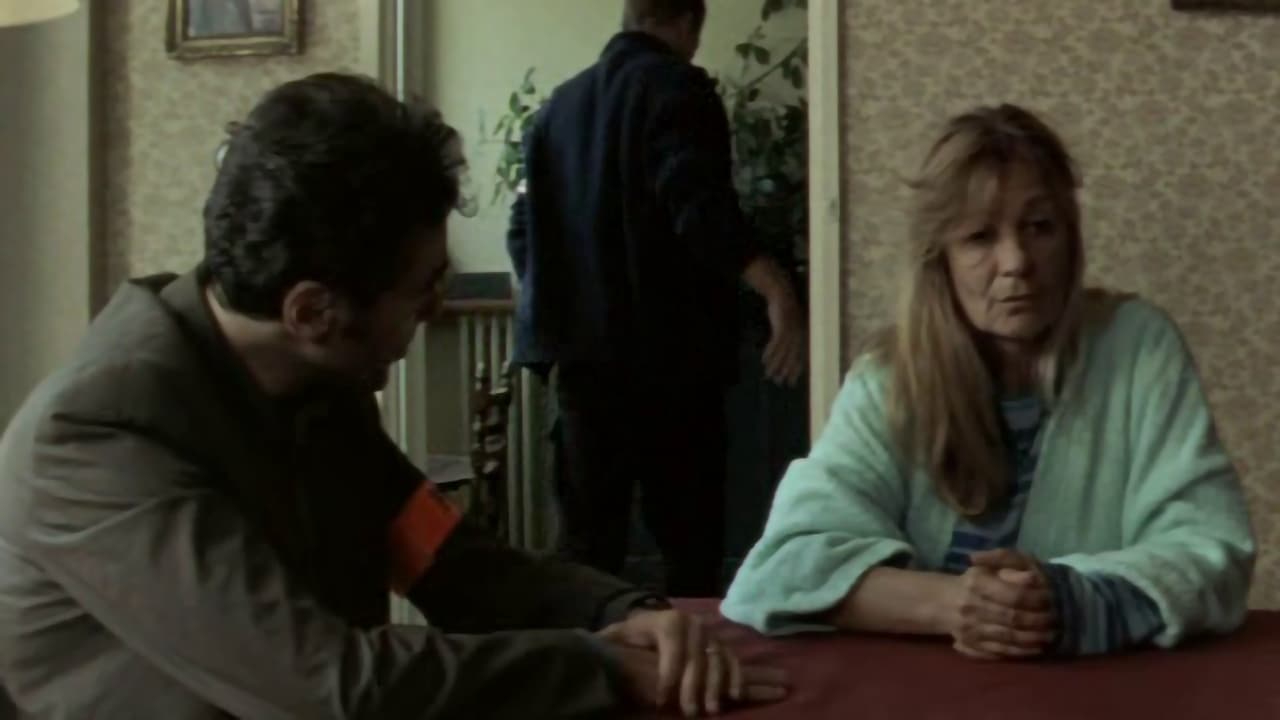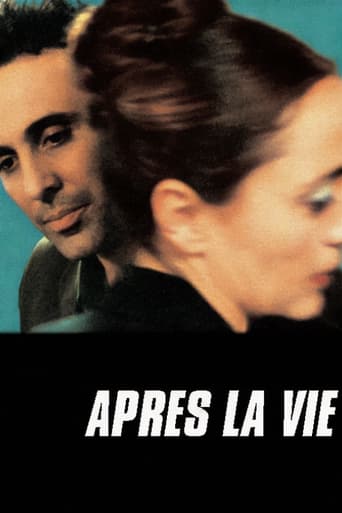



Lack of good storyline.
Instant Favorite.
disgusting, overrated, pointless
It is both painfully honest and laugh-out-loud funny at the same time.
View MoreThis intense drama of a cop trying to deal with his morphine addicted life puts more pieces in place of the world of stories Belvaux has created. It is fascinating to see scenes that played as comedy in part 2 "An Amazing Couple", repeated here, exactly as they were, but now they feel dead serious because of the change in context. The only problem for me – and most critics disagree, is that for me this was the weakest of the three films, the acting sometimes over the top, character logic sometimes vague or missing. I felt disappointed, because after part 2 made me like part 1 even better, I was hoping part 3 would raise the whole into more than the sum of it's parts, into 'great film event' territory. Sadly, that didn't happen for me – maybe because I was expecting too much. I'd certainly give this another shot, and it's absolutely a good film, with some very touching moments. It just felt a little more obvious in how it brought the trilogy's stories and themes (obsession, blindness in service of an idea or need) together than what I wished for.
View MorePascal Manise is a police inspector whose wife, a schoolteacher, is under the influence of morphine. Pascal, who loves too much his wife, buys the drug for her with Jacquillat, a local godfather who formerly has given money to left-winger terrorist organization. Pascal, on other hand, search Bruno le Roux, a terrorist of that organization who escaped recently from prison and who search the man who has denounced him to police. That man is Jacquillat and Jacquillat wants that Pascal gives information about Bruno le Roux and for that, refuses drug for Pascal's wife until Pascal accept this deal. Pascal's refusal has for consequences serious withdrawal symptoms for his wife, Agnes. This movie use the same characters that the two former parts of the trilogy and also some sequences, but the lightning of the movie is centred essentially on the problem of drug dependence and its consequences on the loving husband's comportment. The movie is very well acted especially by Dominique Blanc (Agnes, Pascal's wife) and by Gilbert Melki (Pascal).
View MoreLucas Belvaux's trilogy of films is meant to be taken as one multi-faceted unit, and is best viewed as such. The first (as I saw them), "On the Run," was a `thriller,' with Lucas Belvaux as a terrorist escaped from prison to settle scores and look up an old flame (Catherine Frot). In that film, there were the first glimpses of events in the romantic comedy, "An Amazing Couple." The trilogy ties up with this character study (or `melodrama'), "After the Life" ("Après la vie"), about the relationship between a pathetic and suffering drug-addicted teacher (Dominique Blanc) and her down on his luck and co-dependent cop husband (Gilbert Melki). The thriller was hobbled a bit by it's involvement with the other interwoven stories, but the romantic comedy and `melodrama' work fine as stand alones, and are even enriched by the angles explored and explained by the other films. All three should be seen together. Or, as a friend of mine has supposed, maybe I should just rent Kieslowski's `Three Colors' trilogy instead ?
View MoreAprès la vie is a part of a very interesting cinematographic experiment. The other parts are two other films made by Lucas Belvaux: Un couple épatant and Cavale. The three films are set in the same city (Grenoble in the French Alps) during the same period of time and share the same roles. The point is, in each of the three movies the focus is on different people. The leading actors in one movie are the supporting actors in another one, and vice versa. Some scenes in the movies are exactly the same, some are the same but filmed from a different viewpoint, and most scenes are unique to one of the three movies. Belvaux has chosen three different genres: a comedy (Un couple épatant), a drama (Après la vie) and a thriller (Cavale).So far, so good. The experiment works: after seeing all three of the films, a fourth imaginary film emerges in which all the different pieces of the puzzle come together. There is only one little problem: not all three films are good. The comedy is not very funny, the thriller is not very thrilling, and only the drama is in a way dramatic. I found Après la vie (about a cop who has to become corrupt because he needs dope for his drug-addicted wife) by far the best one out of the three. But perhaps this is because I saw this movie after the other two and knew the story already more or less. Cavale was the first one I saw and, to be honest, I had trouble understanding everything that happened (although a friend I saw the movie with had no trouble at all). But perhaps this is an inevitable consequence of the experiment. So if you want to enjoy an unusual experiment, go see all three movies. If you think that takes too much time and costs too much money, go see Après la vie - a decent drama - and forget about the other two. Unless you want to admire the breathtaking beauty of Ornella Muti: then Un couple épatant is your best choice because she has a leading role in this movie.
View More